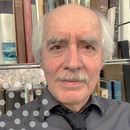Contact
Email:
reinhard.schulze@unibe.ch
Website:
http://www.fino-schulze.net/
Work group
Religion
Reinhard Schulze is Professor Emeritus of Islamic and Middle Eastern Studies at the Department of Middle Eastern Studies at the University of Bern. His research focuses on the intellectual history of the Middle East and its social and epistemological framework. He is particularly interested in shifts in intellectual paradigms and modes of thought in early Islam, early modernity, and the postmodern world. His publications include A Modern History of the Islamic World (London 2002), Der Koran und die Genealogie des Islam. Basel 2015, Geschichte der islamischen Welt. Von 1900 bis in die Gegenwart (München 2016)
Working Group
Religion and Secularity
Research Project
Social Change and the fragmentation of religion: convergence and divergence in the formation of a post-secular order in Europe and the Middle East, 1970-2024
Reinhard Schulze's approach entails describing, analyzing, and interpreting a transformational process in which the normative order of modernity has become not merely frail and permeable, but also changed in significant ways. The reform process began in the 1970s and continues to this day. We are currently witnessing the first height of its political, social, and cultural ramifications.
His research will follow three steps:
In the first step, he shall assess the traditional normative order of modernity and describe it paradigmatically. He will refer to the normative order established by the synchronization of universalism and particularism. This duo is a pillar of the modern order, expressed through notions like religion and society. It is noteworthy how a diversity of specific social and religious traditions adapted to the paradigm of modernity. This has resulted in a global consensus on what constitutes a state, nation, religion, and so on.
He offers three brief observations:
1. Since the nineteenth century, modern normativity has clearly defined what is considered universal and what is specific. The normative categories of state, society, nation, people, and religion were thought to be universal, but their content was shaped by Europe's unique experience.
2. The justification of the universal validity of European particular notions of order was carried out through a discourse referred to as "Orientalism" in respect to the "Orient". At its root, Orientalism denied non-European worlds a place in these universal notions of order, claiming that they had not created them themselves and that their traditions prevented them from fully portraying universality.
3. The distinction between universality and particularity was usually stated implicitly or explicitly in the construction of the pair of notions of religion and society, or its modern variant, "secularity and culture". Luhmann had pointed out that the term "secular" implies a religious interpretation of society based on its worldliness, and that the term "culture" is a synonym for the term "religion," which was used negatively and polemically during the Enlightenment period. This resulted in a clear contrast between "rules" of society and "values" of religion. "Values" are deemed distinctive, while "rules" are universal. The whole of this pattern constitutes what Talcott Parsons referred to as "the normative order of modernity."
In the second phase, he would like to examine the change process itself, asking what social, political, and economic forces drove it and how they were effectively addressed. He will merely describe a few variables of change here. Globalization (world trade did not recover to 1914 levels until 1973), international division of labor, migration, fashion, and political discourses. In Europe, transition has made the normative order weak and contradictory: on the one hand, secularization is just now expressing itself as a normative order and substantially affecting the reality we live in; On the other hand, there occurs "religionization" of social spheres. Universalism and particularism are unique and distinct normative orders. Lyautard meets Habermas.
In a third phase, he would like to explore the current state of the postmodern order's interaction between universalism and particularism, or between society and religion. He will demonstrate how the normative assignment (society is universal, religion is specific) has been reinterpreted and even abandoned in various places as a result of the transition. As a result of this post-secular condition, a cohesive order cannot be recognized: for example, an absolutism of the religious (ultra-religiousness), an interpretation of the religious as country, and the nation as a vessel of the religious, a fragmentation of the social up to and including social disintegration, a disintegration of the religious, and much more can be observed. Universalism and particularism retain their interpretive power, but they overlap. Thus, one can speak of a universal order of equivalent particularities (Putin) or, in parallel, of a particular order of universalist claims to validity (plural universalisms).
This transformation is a paradigm of European history of the last fifty years. But it is also a global event. It has fundamentally changed Europe.


